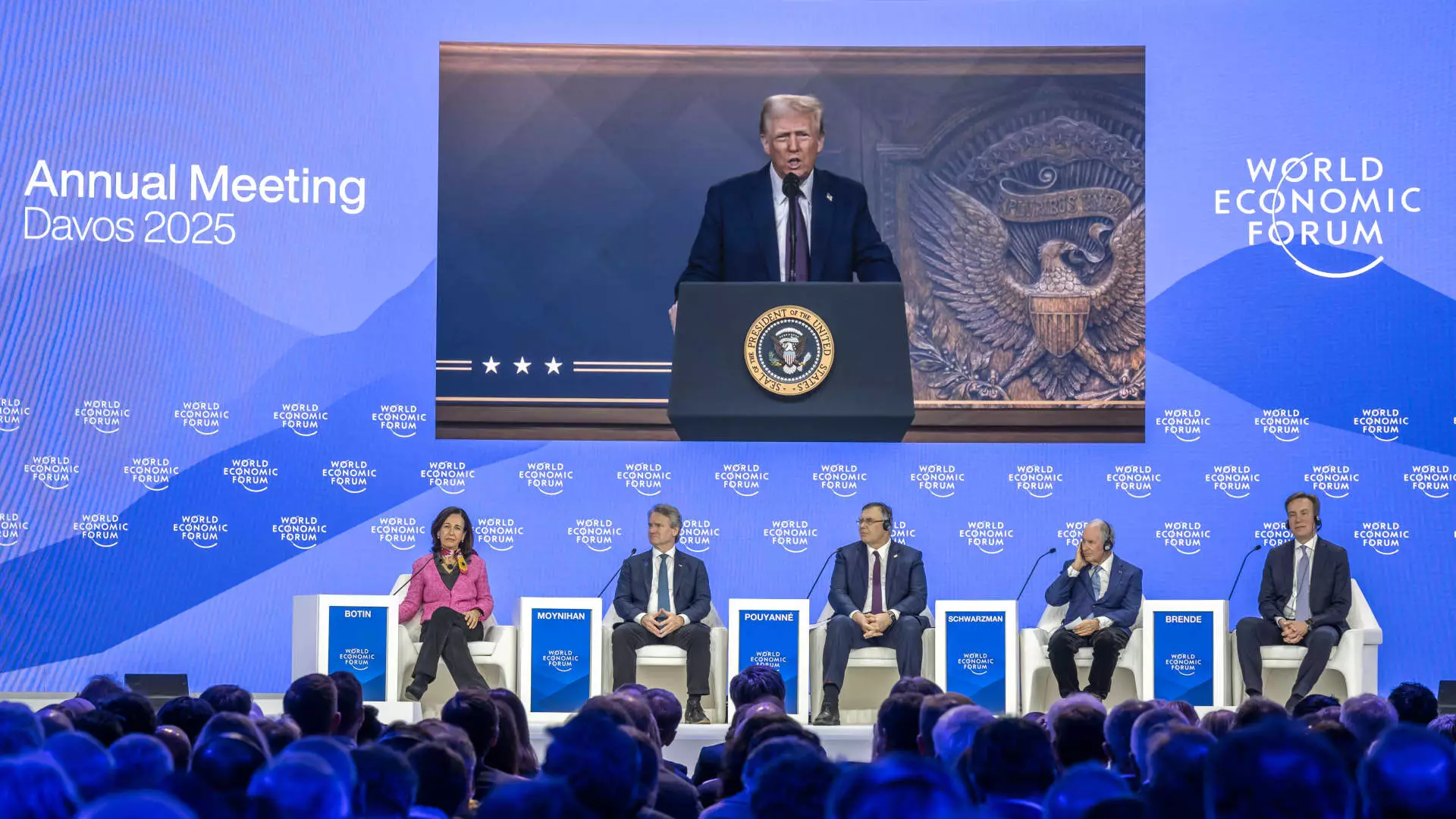In a heated exchange at the World Economic Forum in Davos, Switzerland, former President Donald Trump took aim at two of the United States’ largest banks, Bank of America and JPMorgan Chase. Accusing the banks of bias against conservatives, Trump reignited a narrative that has been a recurring theme in his political rhetoric, particularly in the lead-up to the 2024 elections. This article delves into the implications of Trump’s accusations, the banking sector’s response, and the underlying tensions between finance and politics.
During a video Q-and-A session, Trump urged the CEOs of Bank of America and JPMorgan Chase to “start opening your bank to conservatives,” asserting that many conservatives were experiencing difficulties accessing banking services. This statement marks a significant escalation in the ongoing debate regarding perceived discrimination against conservative voices in various sectors, especially in finance. By framing the issue as a denial of service to conservatives, Trump aims to rally his base, suggesting that a systemic bias exists within major financial institutions.
The broader context of these accusations suggests a deepening divide between political ideologies and banking practices. The narrative that certain banks discriminate against conservative viewpoints feeds into a larger framework of grievances that many on the right feel are perpetuated by progressive policies. For Trump, capitalizing on this sentiment serves not just to bolster his political narrative but also to galvanize his supporters, who may believe their values are under threat from institutions they view as dominated by a more liberal ethos.
In response to Trump’s allegations, both Bank of America and JPMorgan Chase have categorically denied any discriminatory practices. Bank of America emphasized their commitment to serving clients across the political spectrum, stating that they cater to over 70 million clients and do not impose any political litmus test. Similarly, JPMorgan’s spokesperson claimed that they never close accounts based on political affiliations.
However, the financial institutions’ assertions are complicated by historical events. The 2008 financial crisis led to an environment where banks were scrutinized for their lending practices, prompting them to distance themselves from high-risk clients—including those associated with industries that could be viewed as controversial, such as payday loans or firearms sales. This regulatory pressure has contributed to a climate in which banks may selectively manage their client portfolios, inadvertently leading to overlap with political and ideological demographics, even if the motivation is purely risk management.
Trump’s allegations echo sentiments expressed by some state officials. In 2022, Kansas Attorney General Kris Kobach claimed that Bank of America had shut down accounts for religious organizations with conservative viewpoints, suggesting a bias based on beliefs. In response, Bank of America clarified that account closures are primarily driven by compliance issues or changes in account usage, not political or religious discrimination. This assertion, however, does little to quell the narrative among Trump’s supporters, who may interpret such measures as part of a larger pattern of corporate overreach into political and personal beliefs.
The divide between banking practices and political affiliations raises critical ethical questions about the responsibilities of banks in a diverse society. On one hand, financial institutions must adhere to regulations designed to mitigate risks related to money laundering and fraud, but on the other, they must also ensure they are not perceived as overstepping into the personal beliefs of their clientele.
The backlash against banks from Trump and his allies reflects a larger trend of political actors scrutinizing major financial institutions. The ongoing discussion revolves around the idea that banks significantly influence political narratives, and such scrutiny could potentially extend to other industries. As financial institutions seek to navigate this charged atmosphere, they may need to engage more proactively with diverse constituencies and reassess their policies in the face of political pressures.
Moreover, as the 2024 elections draw closer, the tension between politics and banking will likely intensify. Whether Trump’s claims will resonate with more than his core supporters remains to be seen, but the implications for the financial sector are clear: they must tread carefully as they balance compliance with regulatory frameworks and the perceptions of their diverse client base.
Trump’s accusations against Bank of America and JPMorgan Chase underscore a significant intersection of finance and politics. While the banks vehemently deny any discrimination, the dialogue illustrates the increasingly charged atmosphere within which these institutions operate. The challenge for banks lies not just in managing economic risks but also in navigating the political landscape that shapes public perception and trust.

